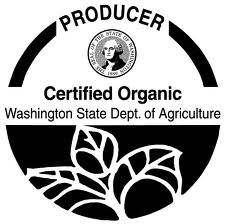NON-GMO Month
The month of October is the fifth annual Non-GMO month and Nash’s Farm Store is participating in it, along with about 1,500 other health food stores nationwide. The event is sponsored by the Non-GMO Project, a nonprofit dedicated to educating the public about GMOs. It is also the only independent entity in the U.S. that verifies whether crops or products have GMOs. You may have seen its logo on many grocery items.
Genetically modified organisms (or GMOs) are organisms that have had specific changes made to their DNA using genetic engineering. This technology makes it possible to transfer specific genes from the DNA of one species and insert it into the DNA of another unrelated species. Some of the products resulting from these “novel” combinations are pharmaceuticals that have shown some benefits against some diseases. But in agriculture, the promises have not come true. The results have been disastrous for soil and human health.
Herbicide-resistant crop technology has led to a 527 million pound increase in herbicide use in the US since 1996.* Most GMO crops were developed to tolerate high doses of Monsanto’s glyphosate weed killer Round-Up. Over the past 20 years, weeds have adapted to Round-Up as well, and so the farmers apply more Round-Up, further polluting the environment. They have now turned to more deadly chemicals, including 2, 4-D, a major ingredient in Agent Orange.
Lower food prices were also promised, but they continue to rise about 2.5% per year. “We will feed the world,” proclaimed GMO promoters. But even after 20 years, hunger afflicts nearly 1 billion people worldwide. Instead of feeding the world, 40% of the US corn crop goes to feed our cars, in the form of ethanol!
Worst of all, GMOs are diminishing plant bio-diversity, and the end result of that will be far fewer options for farmers and consumers in the future.
Nash’s Farm Store helps shoppers identify Non-GMO Project Verified choices with special shelf tags, end cap displays and educational materials. The best way to know you are avoiding GMOs is to look for the USDA or WA State Organic logos. By law, any product carrying those labels cannot contain GMOs.
*Dr. Charles Benbrook, Chief Science Consultant for The Organic Center.



